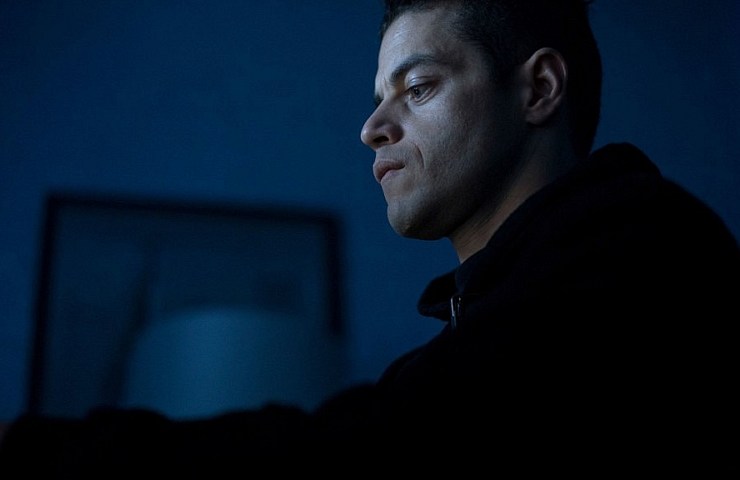Warning! This article will mention a spoiler from the first season and also discusses themes of the show. If you don’t want to know anything before watching it, please come back to this article once you’ve watched past the ninth episode. Thank you!
“Mr. Robot” is a cyber thriller TV show that started in 2015 on USA Network, and ended last December in a mind-blowing series finale. It’s about a young hacker named Elliot (Rami Malek), who is recruited by the mysterious Mr. Robot (Christian Slater), to join a hacking group that’s about to attempt the biggest hack in history. But from then on, the plot spirals out of control, and it soon becomes clear that Elliot’s mental health plays a huge role in this show, adding psychological drama to the well-balanced mix of genres.
Elliot suffers from social anxiety and schizophrenia, and visits his psychiatrist regularly. Later in the show, it becomes apparent that unbeknownst to anyone around him, including himself, he also develops Dissociative Identity Disorder (DID), formerly known as Multiple-Personality-Disorder, to cope with severe childhood trauma.
Film history has showcased this condition in classics like “Psycho” and “Fight Club,” but these films also showed us a horribly romanticized, and even naive version of it. “Mr. Robot” however delivers one of the most accurate depictions of this illness; the viewer sees the world through Elliot’s eyes with all its delusions and confusion about what’s real and what isn’t.
There are a considerable number of mediocre movies that use DID merely as a plot device to deliver a twist no one saw coming (yeah, right), turning it into an overused trope for lazy screenwriters. Not so for Sam Esmail, creator, writer and director of the show. He not only goes out of his way to make sure mental disorders –not only limited to Elliot’s– are portrayed accurately, but also with empathy.
This high grade of realism also extends to the depiction of cyber security for which the show was applauded by many renowned experts in the field. Hacking always had a hard stand in movies and TV-shows, but Esmail had better ideas than simply project code fragments onto furiously-typing cyberpunks hording an ocean of pizza boxes and empty Red Bull cans.
“Mr. Robot” is visually brilliant, and it is together with “Breaking Bad” as one of the most innovative shows in recent years when it comes to cinematography, peaking in an episode that consists of one single shot, similar to the celebrated movies “Birdman” or “1917.”
Another key to the show’s success are the brilliant performances by the cast led by the now Oscar-winner Rami Malek. His sensitive performance of a highly fragile character is spot on, and he also helped to shape the character with all of his flaws and special quirks. Particularly in the final season, Malek delivers a range of emotions and brings a depth to his character, resulting in utter perfection.
Bringing us back to Elliot’s psychological issues, Malek isn’t simply changing his voice or demeanor to illustrate his multiple personas; something James McAvoy pushed to the limits in “Split” and “Glass.” He shows us the internal perspective of the person with DID instead of an outside view. We see and hear what Elliot experiences, but that may not conform to what’s actually the reality of the show.
At first we, and therefore Elliot (he refers to the viewer as “friend”), are not aware of the existence of his multiple personas. With further awareness of Elliott’s condition, he experiences more anxiety, and his personas start to interact with one another. We even experience a total denial of reality with him; one of the biggest mind-blowing scenes in TV history in a prime example of an unreliable narrator.
Talking about blowing minds, in Christopher Nolan’s breakthrough movie “Memento”, the viewer experiences the protagonist’s inability to keep new memories by narrating the film backwards, so the viewer too never knows what happened directly before the scene. Esmail and Malek now perform a similar magic trick (but in chronological order for the most part) to make the audience experience the scary and fragile world of a young brilliant man with severe mental issues.
Malek’s triumph at last year’s Oscars for his portrayal of Freddie Mercury should give the show another boost in popularity, and it wouldn’t be surprising to see a number of nominations for its final season. By portraying a mental disorder accurately, outside of common misconceptions, Esmail creates further awareness and helps build empathy. Few things are harder than dealing with cases of mental illness, and sadly there is still a social stigma about it. “Mr. Robot” not only takes this topic very seriously, but also helps the viewer to shift his perspective towards one of acceptance. Not bad for a TV-show about hackers, right?
Featured image courtesy of USA Network





Recent Comments